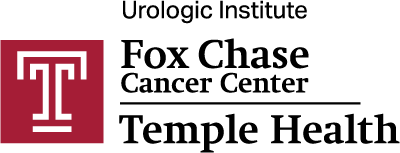

When autoimmune or connective tissue diseases cause inflammation or scarring of the lungs, both diagnosis and effective management can be challenging. Optimal management of these conditions, collectively known as connective tissue disease- associated interstitial lung disease (CTD-ILD), requires coordination between pulmonologists, rheumatologists and other specialists, and primary providers.
Temple is one of few health systems whose rheumatologists and pulmonologists have deep experience with CTD-ILD, and our CTD-ILD program actively prioritizes coordinated care for these patients. Our multidisciplinary approach can improve diagnosis and treatment planning, expedite care, and enhance the patient experience. Patients have access to all the services available at a major academic health and research center, including the full spectrum of clinical services.
OPTIMIZING CARE WITH A MULTIDISCIPLINARY TEAM
In CTD-ILD, autoimmune conditions attack lung tissue, leading to inflammation and scarring (fibrosis). These conditions may include:
- Scleroderma
- Rheumatoid arthritis
- Autoimmune myopathies including polymyositis and dermatomyositis
- Sjögren syndrome
- Systemic lupus erythematosus
- Mixed connective tissue disease
- Undifferentiated connective tissue disease
- Interstitial pneumonia with autoimmune features
Damage from CTD-ILD is usually progressive and can be painful, debilitating, and eventually fatal for patients. Managing CTD-ILD, especially in advanced cases, often requires combination therapies with multiple medications, which may need frequent, careful adjustment to maintain optimal patient quality of life and to avoid adverse side effects.
Temple is your partner in diagnosis and treatment for patients with suspected or diagnosed CTD-ILD. For persistent or advanced CTD-ILD, we provide options when you have few places to turn. Our combined team of pulmonologists, rheumatologists, radiologists, and other specialists delivers a supportive patient experience. We are able to devote dedicated time and attention to monitoring and treatment in ways that may not be possible in other settings. We can often offer same-day appointments with expert pulmonologists and rheumatologists for added convenience and efficiency.

ADVANCED TREATMENT OPTIONS
Patients with early stage CTD-ILD require careful monitoring, including regular pulmonary function tests, while those with mild or asymptomatic ILD may not require therapy. Once diagnosed with CTD-ILD, we help patients and providers decide when advanced treatment is needed and treat and manage the disease over the long term to slow progression and improve symptoms. Due to the systemic nature of autoimmune conditions, we provide appropriate referrals to specialists across the spectrum from GI and nephrology to neurology, dermatology, ophthalmology, and more. Some patients may be eligible for clinical trials, which potentially expands treatment options for our patients.
Medical Treatments
Advanced treatment for CTD-ILD usually involves immunosuppressive medications as well as anti-fibrotic agents in some cases. Temple offers both in-hospital intravenous medication delivery and at-home services. Therapeutics available at Temple include:

Lung Transplantation
While patients often live many years without significant impairment from CTD-ILD, if the disease progresses, some may become eligible for lung transplantation. Temple has the nation’s highest-volume lung transplant program, led by renowned pulmonologists and transplant surgeons with expertise in complex procedures. Our team provides expert evaluation and full wrap-around services and assists with lifelong supportive follow-up care.
CTD-ILD PROGRAM LEADERS

Rohit Gupta, MD
Associate Professor,
Thoracic Medicine and Surgery, Lewis Katz School of Medicine at Temple University
Director, Sarcoidosis Program, Temple University Hospital

Lawrence H. Brent, MD
Professor, Medicine,
Lewis Katz School of Medicine at Temple University
Associate Director,
Rheumatology Fellowship Program,
Temple University Hospital
WHEN TO REFER
We recommend referring any patient who has a connective tissue disease and ILD and patients with interstitial pneumonia with autoimmune features (IPAF) for further evaluation, especially if the ILD is progressive. Most patients present with ILD after the underlying connective tissue disease has already manifested. In some patients, the ILD is the presenting manifestation. The most common symptoms of CTD-ILD are shortness of breath with activity, cough, and fatigue. Because lung damage could be irreversible, timely and coordinated treatment is essential to limit disease progression.
HOW TO REFER
Please call 800-TEMPLE-MED to arrange for a patient consultation with the CTD-ILD team.
A PARTNERSHIP WITH REFERRING PHYSICIANS
The Temple Lung Center has a proven record of co-managing complex patients with referring physicians. Our goal is to provide your patients with excellent care and return them to you in the best health possible, all while keeping you informed and involved.
KEY ACCOUNT MANAGER SERVICE
The Temple Lung Center’s CTD-ILD Program Key Account Manager is always available to assist you with the needs of your patients requiring specialty services or advanced care. The Key Account Manager will work quickly to:
- Eliminate any barriers to accessing hospital services
- Facilitate scheduling of complicated cases
- Coordinate ongoing communication with Temple physicians and staff
- Distribute information about clinical trials and other research programs available
- Arrange physician-to-physician in-service lectures and clinical updates at your office
- Resolve problems and answer questions efficiently and effectively

T.K. Broderic
Director of External Accounts, Temple Lung Center
T: 267-608-8433
E: Thomas.Broderic@tuhs.temple.edu
PHYSICIAN OFFICE LOCATIONS

TEMPLE UNIVERSITY HOSPITAL – MAIN CAMPUS
3401 N. Broad Street
Ambulatory Care Center, 5th Floor
Philadelphia, PA 191400

TEMPLE LUNG CENTER AT TEMPLE HEALTH – CHESTNUT HILL HOSPITAL
8815 Germantown Avenue
Medical Office Building
Philadelphia, PA 19118

TEMPLE HEALTH OAKS
450 Cresson Boulevard
Oaks Corporate Center, Suite 200
Phoenixville, PA 19460

